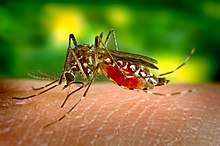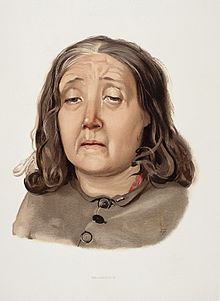World Health Day
WHO selected this theme in recognition that climate change is posing ever growing threats to global public health security.
The global goals of the campaign were:[6] The theme of World Health Day 2011, marked on 7 April 2011, was "antimicrobial resistance and its global spread" and focused on the need for governments and stakeholders to implement the policies and practices needed to prevent and counter the emergence of highly resistant microorganisms.
On World Health Day 2011, WHO called for intensified global commitment to safeguard antimicrobial medicines for future generations.
Life expectancy is going up in most countries, meaning more and more people live longer and enter an age when they may need health care.
Countries and health care systems need to find innovative and sustainable ways to cope with the demographic shift.
[13] The WHO reports hypertension – which is both preventable and treatable – contributes to the burden of heart disease, stroke and kidney failure, and is an important cause of premature death and disability.
The WHO works with countries and partners to strengthen efforts to prevent, detect and respond to foodborne disease outbreaks in line with the Codex Alimentarius, advocating that food safety is a shared responsibility — from farmers and manufacturers to vendors and consumers — and raising awareness about the importance of the part everyone can play in ensuring that the food on our plate is safe to eat.
Simple lifestyle measures have been shown to be effective in preventing or delaying the onset of type 2 diabetes, including maintaining normal body weight, engaging in regular physical activity, and eating a healthy diet.
It impacts on people's ability to carry out everyday tasks, with consequences for families, friends, and even communities, workplaces, and health care systems.
[27] The 2020 World Health Day theme took place in the context of the COVID-19 global pandemic and was therefore launched as 'Support Nurses and Midwives".
[28] Around the world, people spent the day thanking the nurses and health care workers on the frontlines battling the COVID-19 coronavirus.
[29] The US White House released a presidential message emphasizing the role public health plays in "building strong, prosperous, and free societies around the world".




|
no data
≤ 7.5
7.5–15
15–22.5
22.5–30
30–37.5
37.5–45
|
45–52.5
52.5–60
60–67.5
67.5–75
75–82.5
≥ 82.5
|
